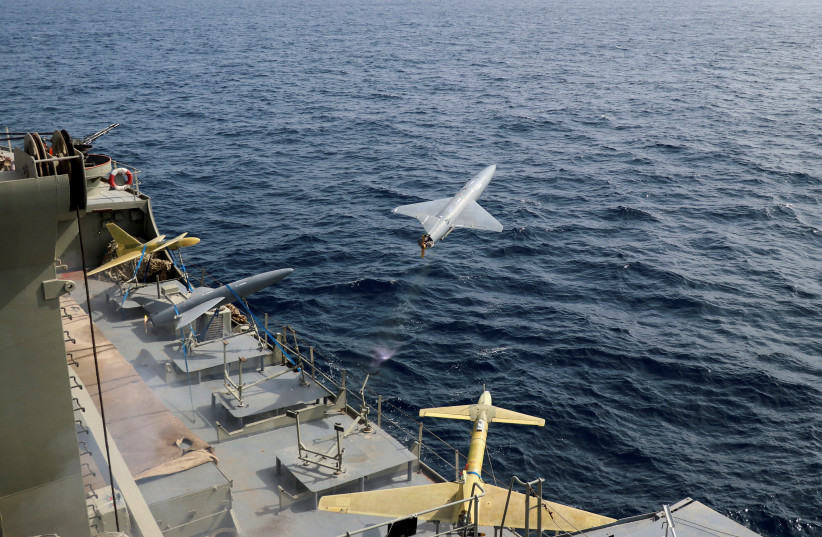Earlier his week, before Thursday’s rocket barrage from Lebanon, Israel shot down an unidentified aircraft that had penetrated Israeli airspace from Syria. The incident comes amid rising tensions between Israel and Iran and its proxies, including Hezbollah and Hamas.
Israel has blamed Iran for the incident, which is believed to have involved an Iranian drone.
Over the past decade, Iran has increased the range, precision and capabilities of its drones. It has also invested in the development of kamikaze drones, such as the Shahed 136 that it has been supplying to Russia for use against Ukraine.
This week’s episode once again highlights the growing threat that Iranian drones pose to both the Middle East and Europe. The proliferation of drones in the Middle East, and now as far as NATO’s doorstep, poses both a unique challenge and an important opportunity for Israel to work with its Western partners to curb these threats.
Drones are a weapon of choice for Iran and its proxy groups like Hezbollah, because they can be based far from Israel’s borders and pose a complex threat to strategic infrastructure. Hezbollah used drones last year to threaten gas exploration off the coast of Israel. That threat emerged as Israel and Lebanon were negotiating a maritime demarcation agreement. Iran has reportedly tried to attack Israel with drones several times over the last five years.

Iran and its proxies have stoked and perpetuated conflicts throughout the Middle East. While the country’s normalization of relations with Saudi Arabia may reduce its export of drones and weapons to the Houthis in Yemen in the coming months, tensions between Israel and Iran are rising in Syria. Up until now, there has been very little pushback by the international community regarding Iran and Hezbollah’s use of Syria as a launch pad for attacks against Israel.
But if Western countries once believed the Iranian threat to be limited to the Middle East, recent events have caused them to think again.
Europe eyeing Iran
As Iranian drones deployed by Russia wreak havoc and devastation in Ukraine, European countries are taking a closer look at the threat they pose to their own interests and national defense. While Iran has long been testing its drones in the region by using them against Israel, Saudi Arabia, the UAE and US forces in Iraq and Syria, the events of recent months illustrate that the Iranian drone threat is by no means contained to the Middle East. Western countries are finally taking note – and action.
In late March, Canada slapped new sanctions on Iran, targeting individuals linked to the Islamic Revolutionary Guard Corps and accusing them of “gross and systematic human rights violations.”
The sanctions also targeted Iranians linked to Tehran’s drone and ballistic missile programs. The European Union also slapped sanctions on Tehran in December for its drone exports to Russia, noting that the systems provided by Iran “are being used indiscriminately by Russia against the Ukrainian civilian population.”
Today the Middle East is reaching a new crossroads, as Iran reconciles with Saudi Arabia and Syria’s regime is making diplomatic inroads that may enable it to emerge from its status as an international pariah. NATO is also undergoing changes as it expands to include Finland and considers how best to address the threat posed by Russia.
So what now?
Now is the time for Israel and our partners to take a close look at the threat posed by Iran and its proxies in both the Middle East and Europe. Combating Iran’s drone threat should be at the top of the agenda.
Iranian drones and other weapons systems often rely on imports and dual-use technology that is imported to Iran via third parties that are sometimes not even aware they are aiding and abetting the Islamic Republic’s arms programs. Israel can work to help close the loopholes that enabled Tehran to build up this threat.
In addition, by helping Western partners draw attention to the Iranian drone threat, Israel will be both supporting the West’s stance on Ukraine – without directly involving itself in that conflict – and illustrating to our partners how the Iranian threat proliferates globally when it is not contained locally.
Western countries need to understand that the threat posed by Iran affects them, too. They are starting to come to that realization; Israel should help.
